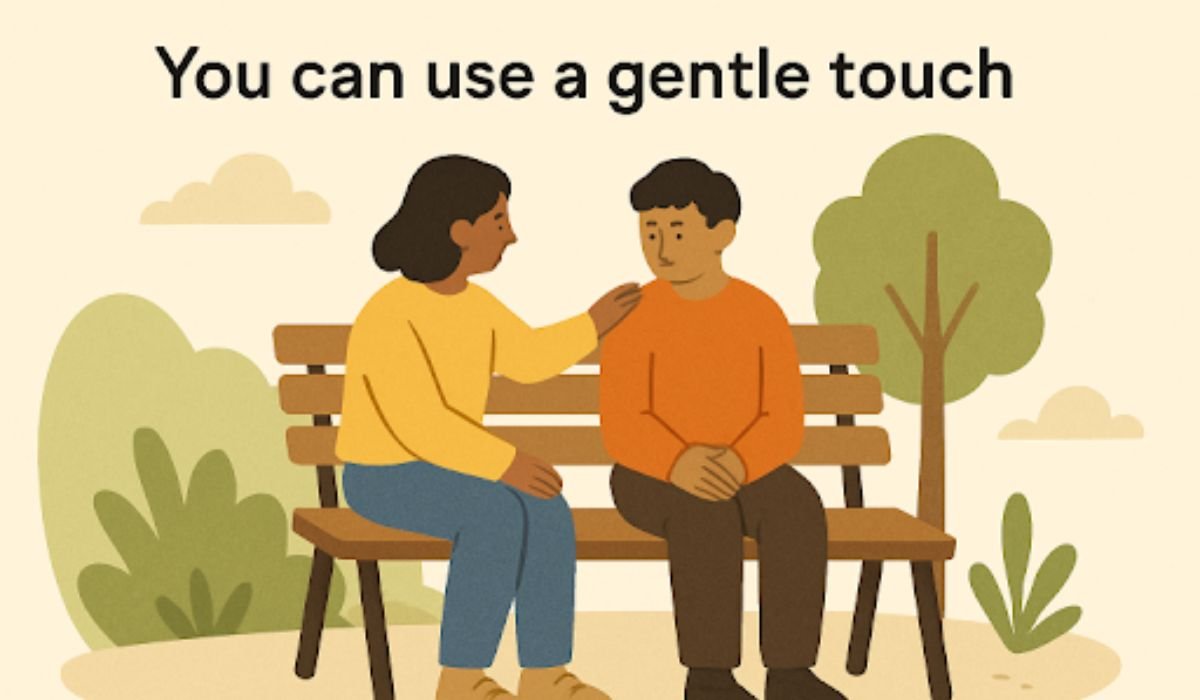Introduction
As Australia’s population ages, the need for skilled aged care workers has grown significantly, creating ample career opportunities in the aged care sector. For those interested in working in aged care, Melbourne offers a range of high-quality training programs that equip students with the skills needed to succeed in this rewarding field. Aged care training programs in Melbourne prepare students to provide compassionate support, personal care, and essential services to elderly individuals, helping them maintain a high quality of life. This article provides a comprehensive overview of aged care training in Melbourne, covering courses, career pathways, skills required, and benefits of pursuing a career in this field.
Why Choose a Career in Aged Care?
A career in aged care is more than just a job; it is an opportunity to make a real difference in the lives of elderly people, offering them comfort, dignity, and support. Here are some of the reasons why aged care has become a popular career choice in Australia:
High Demand for Skilled Workers: With Australia’s aging population, aged care is a growing industry with stable job prospects.
Quick Entry into the Workforce: Aged care training courses, such as Certificate III in Individual Support, typically take a few months to complete, allowing students to begin working in a relatively short time.
Personal Fulfillment: Aged care workers often find their work deeply rewarding, as they provide essential care and companionship to those in need.
Career Advancement Opportunities: Aged care offers various opportunities for career growth, including positions as support workers, care managers, and specialized roles in dementia or palliative care.
Types of Aged Care Training Courses Available in Melbourne
Melbourne offers a variety of aged care training courses to meet the diverse needs and interests of aspiring aged care workers. These courses are designed to provide students with foundational knowledge and practical experience, preparing them for work in residential aged care facilities, home care, and community support settings.
Certificate III in Individual Support (Aged Care)
Certificate III in Individual Support (Aged Care) is the most popular entry-level qualification for those seeking a career in aged care. This course covers fundamental skills in personal care, communication, and support, allowing graduates to work in residential aged care facilities and provide home care services. The course includes:
Personal Care Assistance: Helping elderly clients with daily activities such as grooming, bathing, and dressing.
Effective Communication: Learning to communicate with elderly clients, their families, and other healthcare professionals.
Mobility Assistance: Training on safe practices for helping clients move, including the use of mobility aids.
Workplace Health and Safety (WHS): Understanding safety protocols in aged care environments.
Certificate IV in Ageing Support
The Certificate IV in Ageing Support is designed for those who wish to advance their careers in aged care, preparing them for more specialized and supervisory roles. This course builds on the skills learned in Certificate III and includes:
Advanced Personal Care Skills: Offering support to elderly clients with complex care needs.
Leadership and Supervision: Training in supervising a team of care workers and handling administrative duties.
Palliative and Dementia Care: Understanding the unique needs of clients in palliative and dementia care.
Support Planning: Learning how to create individualized care plans for clients, considering their unique physical and emotional needs.
Diploma of Community Services (Aged Care)
For those interested in advancing further, the Diploma of Community Services with a specialization in Aged Care offers deeper insights into the aged care field and prepares students for management and policy-making roles. This course covers:
Case Management: Developing individualized care plans and coordinating services for clients with complex needs.
Community Engagement: Building connections with community resources to support clients and enhance their well-being.
Legal and Ethical Responsibilities: Understanding regulatory requirements and ethical standards in aged care services.
Program Development: Designing and implementing programs that improve the quality of life for elderly clients.
Short Courses and Workshops
Melbourne also offers a variety of short courses and workshops that provide specialized training in specific aspects of aged care. These courses can be beneficial for those who are already working in the field and want to enhance their skills or for newcomers seeking to gain foundational knowledge. Topics often include:
Dementia Care: Focused training on providing compassionate support to clients with dementia.
Palliative Care: Specialized skills for supporting individuals nearing the end of life, with a focus on comfort and dignity.
Infection Control: Understanding and implementing protocols to prevent infections in aged care facilities.
Skills Acquired in Aged Care Training
Aged care training programs provide students with a comprehensive set of skills, combining both theoretical knowledge and practical experience. These skills are essential for ensuring the safety, comfort, and dignity of elderly clients:
Communication and Interpersonal Skills
Effective communication is key in aged care, as workers need to understand clients’ needs and respond with empathy and patience. Training programs focus on active listening, clear communication, and non-verbal communication techniques.
Personal Care Skills
Students learn how to assist clients with personal hygiene, dressing, feeding, and mobility. This includes training in using assistive devices and understanding each client’s specific physical and emotional needs.
Health and Safety Knowledge
Aged care workers are trained in workplace health and safety, infection control, and manual handling to protect both themselves and their clients from injury or illness.
Problem-Solving and Adaptability
The ability to think on one’s feet and adapt to changing circumstances is vital in aged care. Training programs help students develop these skills, enabling them to provide efficient care even in challenging situations.
Emotional Resilience and Compassion
Working with elderly clients, especially those with health issues, requires emotional resilience. Training programs include modules that prepare students to manage stress and provide compassionate care in difficult situations.
Practical Placements in Aged Care Training
One of the most valuable aspects of aged care training in Melbourne is the practical placement component. Practical placements provide students with real-world experience in a supervised setting, allowing them to apply the skills they have learned in class. Here’s what students can expect from their placement experience:
Hands-On Experience: Students work alongside experienced aged care professionals, assisting with daily tasks and gaining practical skills.
Skills Assessment: Practical placements allow students to demonstrate their abilities, such as personal care and WHS adherence, under supervision.
Client Interaction: Students have the opportunity to interact with elderly clients, helping them build relationships and develop empathy and understanding.
Networking Opportunities: Practical placements often lead to job offers, providing students with a pathway to employment upon course completion.
Career Opportunities After Aged Care Training
Upon completing aged care training, graduates can pursue a variety of roles within the aged care sector. Here are some of the most common career paths:
Personal Care Assistant (PCA)
Personal Care Assistants help elderly clients with daily living tasks, ensuring they feel comfortable and supported. PCAs are in high demand in residential facilities and in-home care services.
Aged Care Worker
Aged care workers provide a broad range of support services, from physical care to companionship. They often work in residential facilities or community centers.
Community Care Worker
Community care workers assist clients who live independently at home, helping them maintain their independence while providing essential support services.
Dementia Care Specialist
With additional training in dementia care, workers can specialize in providing support to individuals with dementia, helping them manage the unique challenges associated with this condition.
Care Coordinator or Team Leader
With a Certificate IV or higher, aged care workers can advance to supervisory roles, overseeing a team of care workers and ensuring high-quality care standards are maintained.
Choosing the Right Aged Care Training Provider in Melbourne
Melbourne is home to a variety of educational institutions and training providers offering aged care courses. When selecting a provider, it’s essential to consider the following factors:
Accreditation: Ensure the training provider is accredited and recognized by Australian industry standards to guarantee that the qualification is valued by employers.
Practical Placement Opportunities: Practical experience is invaluable in aged care, so it’s important to choose a provider that offers quality placements.
Flexible Learning Options: Many institutions offer flexible learning options, including online, in-person, and part-time courses, allowing students to study in a way that suits their schedule.
Reputation and Reviews: Researching the provider’s reputation and reading student reviews can provide insight into the quality of the program and the experiences of past students.
The Benefits of Pursuing Aged Care Training in Melbourne
Pursuing aged care training in Melbourne offers numerous benefits for students, including job security, personal fulfillment, and a meaningful career path. Aged care workers play a crucial role in supporting Australia’s elderly population, and as demand for these services continues to grow, job prospects in the industry remain strong. Additionally, aged care training programs provide:
Pathways to Further Education: Many aged care training programs provide credit for further studies in health care or nursing, allowing for career advancement.
Stable Employment: Aged care is a recession-proof industry with a consistent demand for skilled workers.
Flexible Career Options: Graduates can choose from a variety of roles in different care settings, making it possible to find a job that suits their lifestyle and preferences.
Conclusion
Aged care training in Melbourne offers a fulfilling pathway into a rewarding and essential industry. With a variety of courses available, individuals can gain the skills and experience needed to succeed in aged care and provide compassionate support to Australia’s elderly population. By choosing the right training provider and course, aspiring aged care professionals can build a meaningful career that offers both personal satisfaction and job security. For anyone passionate about making a positive impact on the lives of others, aged care training in Melbourne is a valuable investment in a bright future.











